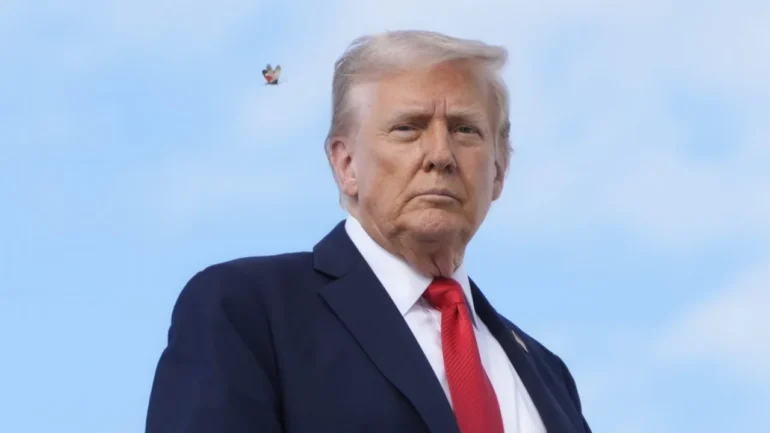On September 13, 2025, President Donald Trump expressed a desire for national healing following the assassination of conservative activist Charlie Kirk, but pointed to the “radical left” as a significant barrier to reconciliation. In an exclusive telephone interview with NBC News, Trump stated, “I’d like to see it [the nation] heal. But we’re dealing with a radical left group of lunatics, and they don’t play fair and they never did.”
The Assassination of Charlie Kirk
Charlie Kirk, a prominent conservative figure and founder of Turning Point USA, was fatally shot on Wednesday, September 10, 2025, during a speaking event at Utah Valley University. The suspect, 22-year-old Tyler Robinson from Utah, faces charges of aggravated murder, felony discharge of a firearm causing serious bodily injury, and obstruction of justice. Authorities reported that Robinson, who had no declared political party affiliation, left behind bullet casings etched with references to fascism, internet memes, and video games. A relative noted that Robinson had recently become more interested in politics and had criticized Kirk at a family dinner before the event.
Investigators are still working to determine Robinson’s motive, and the incident has sparked widespread debate about the toxic state of political discourse in the United States. Utah’s Republican Governor Spencer Cox called for greater tolerance and an end to divisive finger-pointing, urging Americans to “turn down the temperature.”
Trump’s Response and Accusations
In the wake of the shooting, Trump has consistently pointed to the “radical left” as responsible for the violence. In a video from the Oval Office shortly after the incident, he vowed to investigate “each and every one of those who contributed to this atrocity … including the organizations that fund and support it.” Despite the shooter’s identity and motivations being unknown at the time, Trump’s remarks targeted the left broadly.
During his NBC News interview, Trump reiterated his stance, saying, “We’ll see what happens. They [the left] don’t like what’s been happening. We’ve been winning very big.” He also singled out George Soros, a prominent Democratic donor and founder of the Open Society Foundations, accusing him of supporting violent protests and suggesting he should be investigated under the Racketeer Influenced and Corrupt Organizations (RICO) Act. “He’s a bad guy,” Trump said, adding that Soros “should be put in jail.”
Open Society Foundations Responds
The Open Society Foundations, founded by Soros in 1993 to promote human rights and democratic principles, firmly rejected Trump’s allegations. In a statement posted on X in late August, the organization clarified, “The Open Society Foundations, founded by George Soros and chaired by Alex Soros, do not support or fund violent protests. Allegations to the contrary are false, and the threats against our founder and chair are outrageous.” The group emphasized its commitment to constitutional freedoms, including free speech and peaceful protest, as essential to a vibrant democracy.
Political Reactions and Broader Implications
The assassination has intensified political divisions, with some Republicans, including members of the House Freedom Caucus, calling for a select committee to investigate the “radical left’s assault on America and the rule of law.” Meanwhile, some Democrats have argued that inflammatory rhetoric from the right contributed to the incident. Governor Cox and others have advocated for de-escalation, urging both sides to avoid further polarizing the nation.
Kirk’s death has also prompted broader reflection on the state of political dialogue. Reports from NBC News highlighted a surge in toxic rhetoric, including calls for “civil war” following the assassination. Turning Point USA announced plans for a large-scale memorial service for Kirk, underscoring his influence within conservative circles.
As investigations into the shooting continue, Trump’s comments reflect a tension between his stated desire for unity and his focus on blaming political opponents. Whether this approach will hinder or help efforts to heal the nation remains uncertain.
